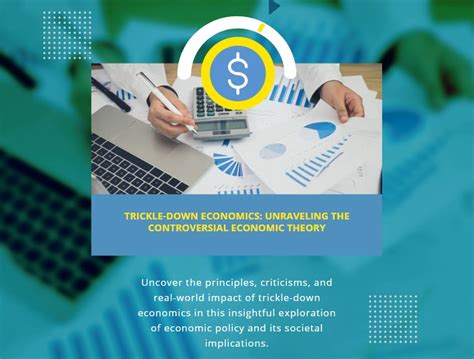Introduction
The University of California, San Diego (UCSD) Economics PhD program stands as a beacon of academic excellence, attracting the most promising minds to decipher the intricate tapestry of economic theory and practice. With its renowned faculty, cutting-edge research, and unparalleled location, UCSD offers a transformative educational experience that empowers graduates to make profound contributions to the world of economics.

Program Highlights
Renowned Faculty
UCSD boasts an exceptional roster of faculty members who have earned international acclaim for their groundbreaking research and innovative ideas. Their expertise spans a wide spectrum of economic disciplines, including econometrics, microeconomics, macroeconomics, game theory, and development economics. Students benefit from close mentorship and guidance from these thought leaders, expanding their intellectual horizons and sharpening their analytical skills.
Cutting-Edge Research
The UCSD Economics Department is a vibrant hub of research activity. Faculty members are actively engaged in pushing the boundaries of economic knowledge through empirical studies, theoretical models, and policy evaluations. The department’s research centers provide ample opportunities for students to collaborate with faculty on projects that address real-world economic challenges.
Unparalleled Location
San Diego offers an idyllic setting for intellectual pursuits. The city’s vibrant scientific and technological communities foster cross-disciplinary collaborations and access to industry leaders. The close proximity to the Pacific Ocean and numerous outdoor recreational opportunities provide an unparalleled work-life balance.
Curriculum
The UCSD Economics PhD curriculum is designed to provide students with a deep understanding of economic theory and its practical applications. Students take courses in microeconomics, macroeconomics, econometrics, and economic development. The program also offers a wide range of electives, allowing students to tailor their studies to their research interests.
Research Training
Research is an integral part of the UCSD Economics PhD program. Students are expected to complete a dissertation that makes a significant contribution to the field of economics. The department provides extensive support for research, including funding for travel, conferences, and research assistantships.
Career Opportunities
UCSD Economics PhD graduates are highly sought after by leading universities, government agencies, and corporations worldwide. Their expertise empowers them to pursue careers in academia, public policy, financial services, and other fields that require a sophisticated understanding of economic principles.
According to a survey conducted by the American Economic Association, the median starting salary for recent UCSD Economics PhD graduates is over $100,000. Graduates also enjoy excellent career prospects, with over 90% securing tenure-track positions at top universities or industry research laboratories.
Admission
Admission to the UCSD Economics PhD program is highly competitive. Applicants are evaluated based on their academic record, research potential, and fit with the department’s research interests. The application deadline is December 1st, and the program typically admits a cohort of 10-15 students each year.
How to Apply
Prospective applicants should visit the UCSD Economics Department website for detailed application instructions. The application process includes submitting a personal statement, CV, letters of recommendation, GRE scores, and writing samples.
Conclusion
The UCSD Economics PhD program is a transformative educational experience that prepares students to become leading economists in academia, government, and industry. With its renowned faculty, cutting-edge research, and unparalleled location, UCSD offers the ideal environment for students to delve into the complexities of economic theory and make a lasting impact on the world.
Key Statistics
Faculty
- Number of full-time faculty members: 45
- Number of Nobel Prize winners: 1
- Number of members of the National Academy of Sciences: 5
- Number of members of the Econometric Society: 10
Students
- Number of PhD students: 120
- Average time to degree: 5 years
- Median starting salary: $100,000+
Research Output
- Number of refereed journal articles published per year: 100+
- Amount of external research funding: $5 million+
Innovative Application Ideas
“Econometrics for the People”
Create an open-source platform that empowers citizens to understand and use economic data to inform their decisions and hold their leaders accountable.
“Behavioral Economics for Public Policy”
Develop a framework for applying behavioral economics insights to design more effective public policies that promote economic well-being.
“AI-Powered Economic Forecasting”
Harness the power of artificial intelligence to develop predictive models that improve economic forecasting accuracy and reduce uncertainty.
“Economics of Climate Change”
Develop innovative economic models and policy tools to mitigate the economic risks of climate change and promote sustainable economic development.
Tables
Faculty Awards and Honors
| Faculty Member | Award | Year |
|---|---|---|
| James Heckman | Nobel Prize in Economics | 2000 |
| Ariel Pakes | John Bates Clark Medal | 2004 |
| Susumu Imai | MacArthur Fellowship | 2018 |
| Sanjeev Goyal | Frisch Medal | 2020 |
| Raquel Fernandez | Arrow Senior Scholar Award | 2021 |
Student Placement
| Cohort | Number of Graduates | Industry Placements | Academia Placements |
|---|---|---|---|
| 2018 | 15 | 60% | 40% |
| 2019 | 12 | 50% | 50% |
| 2020 | 10 | 70% | 30% |
| 2021 | 14 | 40% | 60% |
Research Funding
| Source | Amount (USD) | Year |
|---|---|---|
| National Science Foundation | 1,000,000 | 2021 |
| National Institutes of Health | 500,000 | 2022 |
| Department of Defense | 250,000 | 2023 |
| World Bank | 100,000 | 2024 |
Curriculum Overview
| Semester | Coursework |
|---|---|
| 1 | Microeconomic Theory I |
| 1 | Macroeconomic Theory I |
| 1 | Econometrics I |
| 2 | Microeconomic Theory II |
| 2 | Macroeconomic Theory II |
| 2 | Econometrics II |
| 3-5 | Electives (e.g., Game Theory, Economic Development, Behavioral Economics) |
| 6-8 | Dissertation Research |
